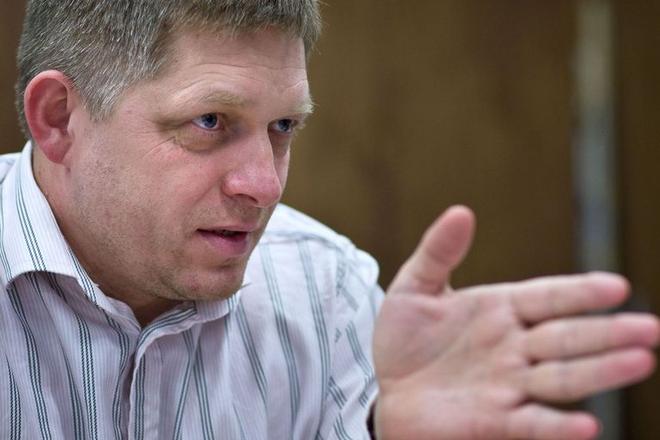DESPITE a previous promise to give opposition parties posts from which they can oversee the work of the government, Prime Minister Robert Fico has now decided to fill the top post at the Public Procurement Office (ÚVO) with a professional nominated by professional associations and employers’ organisations. The opposition parties and several political scientists view the action as a signal that the new government does not want to give the opposition the ability to check public tenders announced by state ministries.
Fico had stated at a meeting of his Smer party in Banská Bystrica on March 30 that two of Slovakia’s primary oversight offices, the ÚVO and the Supreme Audit Office (NKÚ), would be led by nominees put forth by the opposition parties, specifically mentioning that the head of ÚVO should be chosen by the opposition together with employer organisations.
“We respect that these supervisory functions belong to the opposition,” Fico said at that meeting, as quoted by the TASR newswire.
Four days later Fico announced that the ÚVO post would instead be filled by an expert who can improve the quality of public procurement, adding that the nominee should be chosen by associations because he regards ÚVO as an office where professional associations and employers should be very active, the Sme daily wrote.
Two political scientists expressed disappointment over the change in direction.
“I suppose it would be uncomfortable for him [Fico] if the opposition knew too much in this area [i.e. public procurement],” political scientist Miroslav Kusý told The Slovak Spectator when asked why he thought Fico had changed his mind.
Grigorij Mesežnikov, president of the Institute for Public Affairs, told The Slovak Spectator that Smer’s change in attitude might be influenced by a desire not to further complicate future procurements, adding that this might be important for members of Smer as well as for businesses that are close to the party.
“They do not want the opposition to have the opportunity to influence these efforts,” Mesežnikov stated.
The ÚVO has not had a chair since April 11, 2011 when Roman Šípoš (a Smer nominee from when the party was in opposition) resigned from his post.
Former prime minister Iveta Radičová decided at that time to attempt to select a new chair through a public selection process after the opposition, Smer and the Slovak National Party, did not recommend a candidate that was acceptable to Radičová.
Opposition leaders object
Several leaders of the centre-right opposition parties stated that it has become a tradition in Slovakia for the opposition to nominate the candidate to lead the ÚVO. Pavol Abrhan of the Christian Democratic Movement (KDH) told the SITA newswire that it seems that “Fico has chosen professional associations rather than political parties to be his opposition”.
Igor Matovič, the chair of the Ordinary People and Independent Personalities (OĽaNO) party said Fico’s decision was dismissive of the opposition and that the prime minister is only trying to “find a way to prevent thoroughgoing review of procurements”. He added that if the post is not filled by a candidate proposed by the opposition parties, the post should be offered to someone from the non-profit, NGO sector.
A similar opinion was expressed by Miroslav Beblavý of the Slovak Democratic and Christian Union (SDKÚ), who told SITA that Fico does not want to choose a person “who will build the strong and independent office that we need”.
Juraj Miškov, the former economy minister and now an MP for the Freedom and Solidarity (SaS) party said Fico’s decision marked the return of the “old Smer”, adding that the party had not really improved its behaviour if it was able to “deny its own statements after only a few days”, SITA wrote.
Kusý stated that the opposition parties in a developed democratic society should nominate the heads of offices that have an oversight responsibility because these are meant to be independent from the government.
“If there is anything that is completely independent [of the government], it is the opposition,” Kusý stated.
Mesežnikov predicted that the post will be filled by someone “absolutely loyal to Smer” even though his opinion is that the chair of ÚVO should not be nominated by any of the political parties.
“There should be a person [in that office] who has an indubitable moral and professional character,” Mesežnikov told The Slovak Spectator.
Roman Cuprik contributed to this story



 Robert Fico changed his mind over the ÚVO. (source: SME)
Robert Fico changed his mind over the ÚVO. (source: SME)